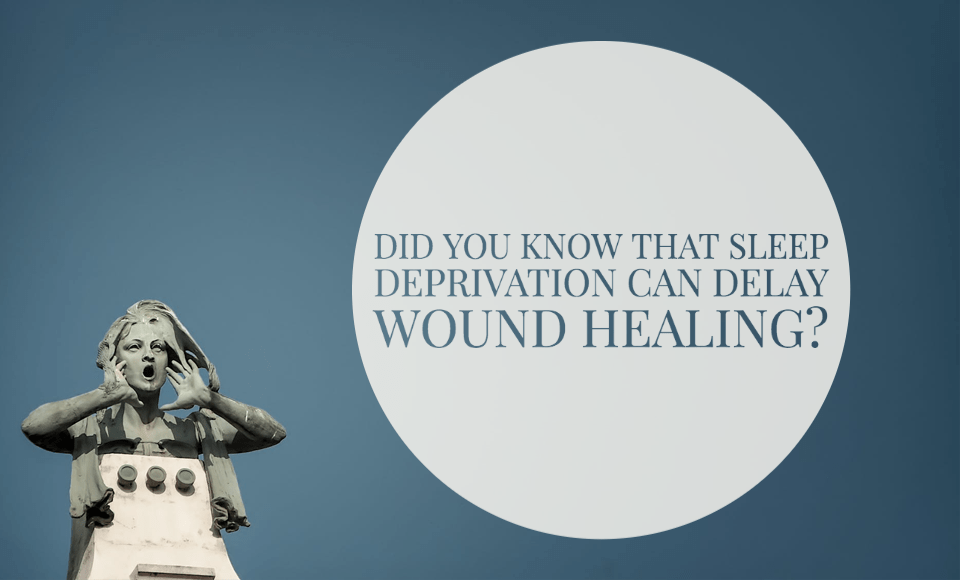Without proper sleep, the body can not recover and rejuvenate for the next day. Sleep deprivation is a stress-induced complication but can also lead to additional stress upon the body. For individuals who suffer from injury, sleep deprivation can have an adverse effect on the healing and recovery process.
Wound healing is a complex physiological process that engages protein changes, cell division, and replication, and promotes the release of growth hormones. With sleep, these processes are vastly improved. When a person is sleep deprived, the body is unable to engage in the wound healing processes as it is actively working to maintain normal bodily functions. With sleep deprivation, the most significant complication involves the loss of growth hormone secretion which not only impairs wound healing, it impairs total body function.
If you suffer from an injury that involves a wound, either internal or external, it is important to understand the impact your sleep may have on your recovery. In many cases, pain and other wound healing complications impede the ability of the sufferer from gaining quality sleep. As a result, pain medications prescribed often include both a pain-alleviating component but also a sleeping aid. As you work through your recovery, it is important to ask your physician to guide you through the processes that involve sleep and to reduce the risk of sleep deprivation.
In addition to the actual wound healing process, quality sleep also serves to promote improvement in the immune system. With an improved immune system, you can reduce your risk for additional injury, infection, and improve your mental state of mind. These dynamics are also important to the wound and injury healing process.
The timing of your sleep deprivation may also play an impact on the wound healing process. As a general train of thought, the first five days following your injury may result in some degree of sleep deprivation but this sleep deprivation does not adversely affect your wound healing process. It is the sleep deprivation that occurs in the period beginning after day six that may have a greater long term impact on your wound healing. Therefore, management of your wound healing and sleep deprivation should be highly focused well past day five.
As sleep disorders continue to be a leading focus of many healthcare initiatives, much focus is turned to the reduction of sleep deprivation in individuals who suffer from wound healing complications. When treating for an injury, ask your healthcare professional about the medications and methods you can utilize to aid in a night of restful and quality sleep for the weeks after your injury occurs.

